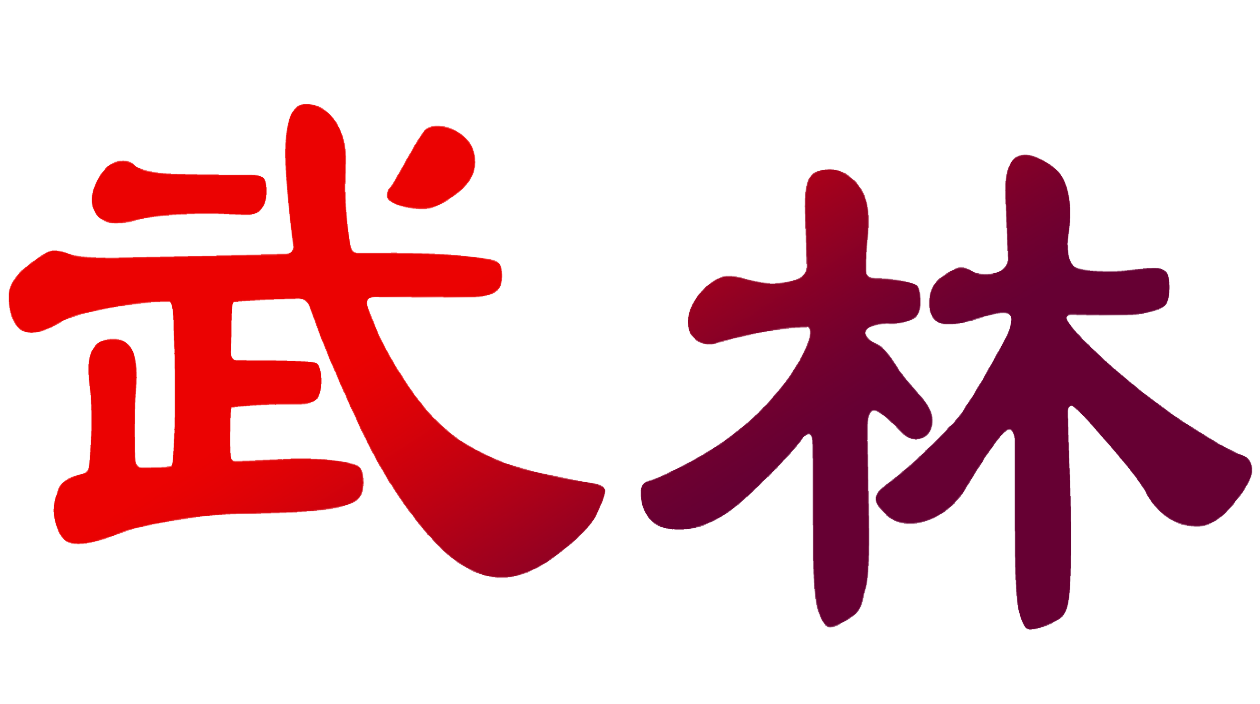The term Wulin (武林) can be found in the wuxia fantasy genre and in world of Chinese martial arts. It refers to the subculture surrounding a community of martial arts masters. The literal translation of Wulin is ‘martial forest’ and so calls to mind images of a single forest comprised of may different trees (schools/masters). It is a idea which runs contrary to image of feuding school found in martial arts movies.

Because Chinese languages are tonal a single syllable can carry great depth and breadth of meaning. In written form the sound is associated with a character or pictogram which itself describes an object or concept. Different from written languages which describe the sound of the word. In the case of Wulin; Wu (武) translates as ‘martial’ or ‘military.’ You can also find this same wu in the words Wushu (martial arts 武術) and Wuxia (martial hero 武俠). In Japan, that same character is pronounced bu as in Bushido (martial solider way 武士道).
We can look at the pictogram for Wu (武) and see that it is constructed by a combination of smaller pictograms, known as radicals. They translate to stop (purple) and spear (black). Both can be considered actions, as in to spear, done with an ancient Chinese polearm known as a ge (戈) or dagger-axe. The ge’s appearance is not unlike the character itself.. They use a few centuries prior to the common era, so that remain are the blades and fittings. The other pictograms can be translated to zhi (止) which means ‘stop.’
These are ancient aspects to a language well over two millennia old, its the roots are deep and its meaning continues to grow.


The common interpretation of this combination of radicals is ‘stop the spear.’ Its implication is that martial arts are used to stop the spear – to end the fight. However, there’s more.


The forest of Lin
lin is a simpler character to define, as well as a good teaching moment regarding the pictographic nature of Chinese. Lin (林) means ‘woods’ or ’forest’ and it combines two twin characters, namely mu (木) which means ‘tree,’ or ‘wood’ as in one of the basic five elements of Chinese cosmology. Surely you can see the tree in those characters. If three mu radicals are combined, it’s sen (森) which also means ‘forest’ although a bigger one than lin. Senlin (森林) means ‘jungle.’

So why is lin used in Wulin? Heck if I know. Despite dabbling into Chinese character research like this, I’m far from a scholar of Chinese language. I’m not even fluent in Chinese. Personally, I’ve always wanted to attach it to Shaolin (少林) as in Shaolin Temple. Some have told me that this is indeed the case, but those same Chinese ‘mansplainers’ are often the same pontificators of ‘stop the spear’ and are probably shocked to read the earlier observations on the recent research findings of actual scholars about wu presented above. What do they know? Their assumptions are often based solely upon what they’ve heard, often from wuxia movies and novels. Those are the fruits of our martial tree, not the roots. Shao means ‘little’ and the name is geographic referencing the name of the area, not a martial thing.
Personally, I love the term Wulin because it’s so evocative, not just for the fantasy masters who fly about delivering qi blasts in wuxia stories, but for the authentic masters of Kung Fu. It’s like the Jedi, or the wizarding world, or even the superhero universes. But it’s very real, or at least some aspects of it are. While we don’t have lightsabers, wands, or batmobiles, we do have swords, spears, three-section staffs, and all manner of unique weaponry, and many of the Wulin genuinely know how to use them.
On another personal note, I’ve always preferred the term Jianghu (江湖) to refer to the martial community. That’s more of a wuxia term, not generally bandied about in real world circles. Jianghu means ‘rivers and lakes’ and it evokes the romantic image of wandering warriors travelling the rivers and lakes of China on quests, missions, doing good deeds or bent upon revenge.
But that’s another story…



Leave a Reply